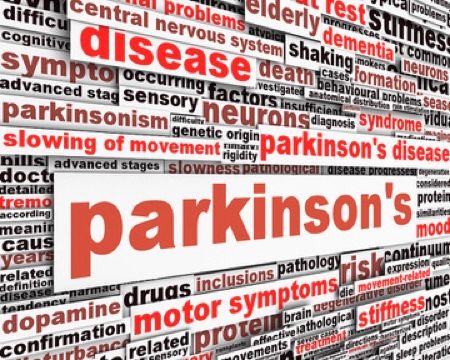Is There a Cure for Parkinson's Disease?

Parkinson’s disease is a progressive disorder of the nervous system that affects movement, and is caused by the loss of dopamine-producing brain cells. It is a chronic condition that affects over 10 million people worldwide, with approximately 60,000 new cases being diagnosed in the United States each year. As such, finding a cure for Parkinson’s disease has never been more important.
People with Parkinson’s experience a wide range of symptoms including tremor or shaking, which is usually in the hand, arm or leg on one side of the body, slow movement, stiffness, balance problems, and speech changes. While there is currently no cure or treatment that can reverse the damage caused by Parkinson’s, there are several ways to manage the symptoms and improve quality of life.
The primary goal of treating Parkinson’s disease is to provide relief from the symptoms of the condition, while also slowing down or preventing its progression. There are several different treatment options available, including medication, physical therapy, lifestyle changes, and surgery. All of these methods have different levels of effectiveness and may need to be combined to achieve the desired outcome.
Medication can be used to control the symptoms of Parkinson’s and may include drugs such as levodopa, dopamine agonists, MAO-B inhibitors, anticholinergics, and amantadine. These drugs work by increasing levels of dopamine in the brain, and can be taken orally or via injections. Physical therapy can help improve posture, range of motion, and mobility, and it can also help reduce fatigue and improve balance.
Finally, lifestyle modifications, such as regular exercise, healthy eating, and stress management, can go a long way towards making living with Parkinson’s easier. Exercise can help increase strength, flexibility, and coordination, while healthy eating can help reduce inflammation throughout the body. Reducing stress and practicing relaxation techniques can also be beneficial.
Understanding the various treatments and therapies available can help those living with Parkinson’s to find the right combination to manage their symptoms and improve their overall quality of life.
Understanding Parkinson's Disease
Parkinson's Disease (PD) is a chronic and progressive neurological disorder, with symptoms ranging from muscle rigidity to tremors. It is estimated that each year, as many as 10 million people globally are diagnosed with the disease. In particular, the over-50 age group in industrialized nations have the highest prevalence rate.
Common Symptoms of Parkinson's Disease
The presenting symptoms of Parkinson's Disease can vary from one person to the next. Some common symptoms include:
- Slowed movement
- Muscle stiffness
- Tremor, or trembling in hands, arms, legs, jaw and face
- Impaired posture and balance
- Loss of automatic movements
- Speech changes
- Writing changes
Many individuals with PD also experience non-motor symptoms such as depression, anxiety, sleep disorders, and cognitive issues.
Ultimately, a diagnosis should be provided by a qualified medical professional. Due to its progression, PD requires ongoing management and monitoring, though some treatments may help slow the progression of the disease and manage many of its symptoms.
Treatment Options for Parkinson’s Disease
When diagnosed with Parkinson’s disease, it is important to understand the treatment options available. Prescription medications, physical therapy, lifestyle changes, and much more can help slow down the progression of the disease and make living with it more manageable. Here are some of the primary options for treating Parkinson’s Disease:
- Prescription Medications: There are certain medications that have been developed to help control the symptoms of Parkinson’s Disease. These medications can help make movement easier, reduce tremors, increase alertness, and improve overall quality of life. In some cases, two or more medications may be prescribed to work together in controlling the symptoms.
Understanding the various treatment options available for Parkinson’s Disease can help those diagnosed to make the right decisions for their individual health. It is important to consult with a doctor to determine which treatments and therapies will be most effective.
Recent Advances in Finding a Cure for Parkinson's Disease
Parkinson's Disease is an incurable neurological disorder that affects millions of people around the world. But, despite its debilitating effects, research on finding a cure for Parkinson's is ongoing. In the past few years, scientists, medical professionals, and researchers have made some promising advances in the understanding and potential treatment of the disease.
The most notable breakthroughs have been in the areas of stem cell research and gene therapy. Stem cell research has shown promise for regenerating missing or damaged neurons in the brain that are associated with Parkinson's. This could potentially lead to a wider array of treatments that specifically target the symptoms of the disease.
Gene therapy is another area of study that has seen advances. Through this technique, scientists are looking to replace faulty genes that cause the disease with healthy ones. However, more research needs to be done in order to better understand how to administer gene therapy effectively.
Clinical trials are also being used to explore potential new treatments. These trials are conducted with volunteers who match the profile of those with Parkinson's Disease in an effort to determine the effectiveness of different drug treatments. To date, some of the drugs tested in these trials have had positive results and are currently being explored further.
Finally, researchers are also considering immunotherapy as a potential treatment for Parkinson's Disease. Immunotherapy aims to use a person's own immune systems to fight off disease-causing agents, such as faulty proteins. So far, the results have been mostly promising and the research is continuing.
Although there is still much work to be done in the field of finding a cure for Parkinson's Disease, the recent advances in stem cell research, gene therapy, clinical trials and immunotherapy have given those affected by the disease new hope. By continuing to invest in and support these exciting breakthroughs in research, we may one day find a cure for Parkinson's Disease.
Potential Treatments & Cures for Parkinson’s Disease
The search for a cure for Parkinson's Disease has been ongoing for some time, with researchers around the world working tirelessly to find a way to improve the lives of those living with the condition. While there is still no definitive cure available, there are a number of potential treatments and cures that are being actively explored.
One treatment option that is becoming increasingly popular is Deep Brain Stimulation (DBS), which uses electrical implants to help regulate certain areas of the brain. This technique has been shown to be effective in reducing the symptoms of Parkinson's, such as tremor, slowness of movement and difficulty with balance.
Another promising avenue of research is gene therapy for Parkinson's, which involves introducing specific genes into cells to help reduce symptoms. While this research is still in its early stages, it shows great promise for the future of treating Parkinson's.
Researchers have also been investigating the use of stem cells to treat Parkinson's symptoms, as well as using drugs to help reduce the effects of the disease. While these approaches are still in their infancy, they could potentially be used to help treat the symptoms of the condition.
Finally, there is potential for the development of treatments that work on a more holistic level, such as lifestyle modifications, exercise, and meditation. Such approaches could help to reduce the severity of a person's symptoms, as well as help manage their overall wellbeing.
Overall, while there is still no cure for Parkinson's Disease, there are a number of potential treatments and cures being explored that show promise for the future of managing the condition. As research continues to progress, there is hope that one day a cure may be found.
Finding a cure for Parkinson's Disease (PD) is no easy task. Experts face a wide range of challenges and obstacles when trying to unlock the secret to curing this neurological disorder. It is important to understand the complexity of the disease in order to better understand why finding a cure is so difficult.
One of the major challenges facing PD research is understanding the cause of the disease. While there is evidence to suggest that genetics and environmental factors can both play a role, the exact cause of the disease is still not known. This makes it difficult to develop targeted treatments and therapies for those who have been diagnosed with PD.
Another significant challenge is the unpredictability of the disease. Every person's experience with PD is different, meaning that treatments that prove to be effective for one patient may not be effective for another. This makes it difficult to develop a single, standardized approach to treating the disease.
The cost of researching and developing treatments and therapies is also a major obstacle. Developing a medication or therapy requires extensive amounts of time and resources, making it difficult for researchers to make progress in a timely manner.
Finally, the stigma surrounding neurological disorders can impede progress when it comes to finding a cure for PD. Many people are still unaware of the seriousness of this disease, resulting in less public attention and limited access to research funding.
In order to find a cure for this debilitating condition, these obstacles must be addressed. There are a number of organizations that are working towards doing just that by funding and conducting research and advocating for greater awareness and understanding of the disease. With enough support, it is possible to make progress in finding a cure for Parkinson's Disease.
While there is no definitive cure for Parkinson's disease, many treatments are available to help manage the symptoms and provide meaningful relief. Living with Parkinson's disease can be difficult but people can still lead a full and satisfying life with the right support. Regular physical exercise and alternative therapies such as music and art therapy have shown to be beneficial. It is important to keep track of your progress and seek medical advice when necessary, as well as connect with others who are living with the condition. Additionally, the value of nourishment from a healthy diet should not be underestimated.
Engaging in social activities such as talking with family and friends and engaging in hobbies can also help to improve quality of life. It is just as important to take time to rest and relax too. Parkinson's Disease can be an emotional journey and it is essential to take care of yourself and surround yourself with people who understand and support you.
Living with Parkinson's Disease can be challenging, but with the right information, attitude and support you can live a full and meaningful life. Seeking medical advice and connecting with others living with the disease are essential. With advances in modern medicine, researchers are actively searching for effective treatments and even cures for this debilitating condition, but in the meantime, it is important to focus on taking care of yourself and leading an active lifestyle.
You might also like this article:


